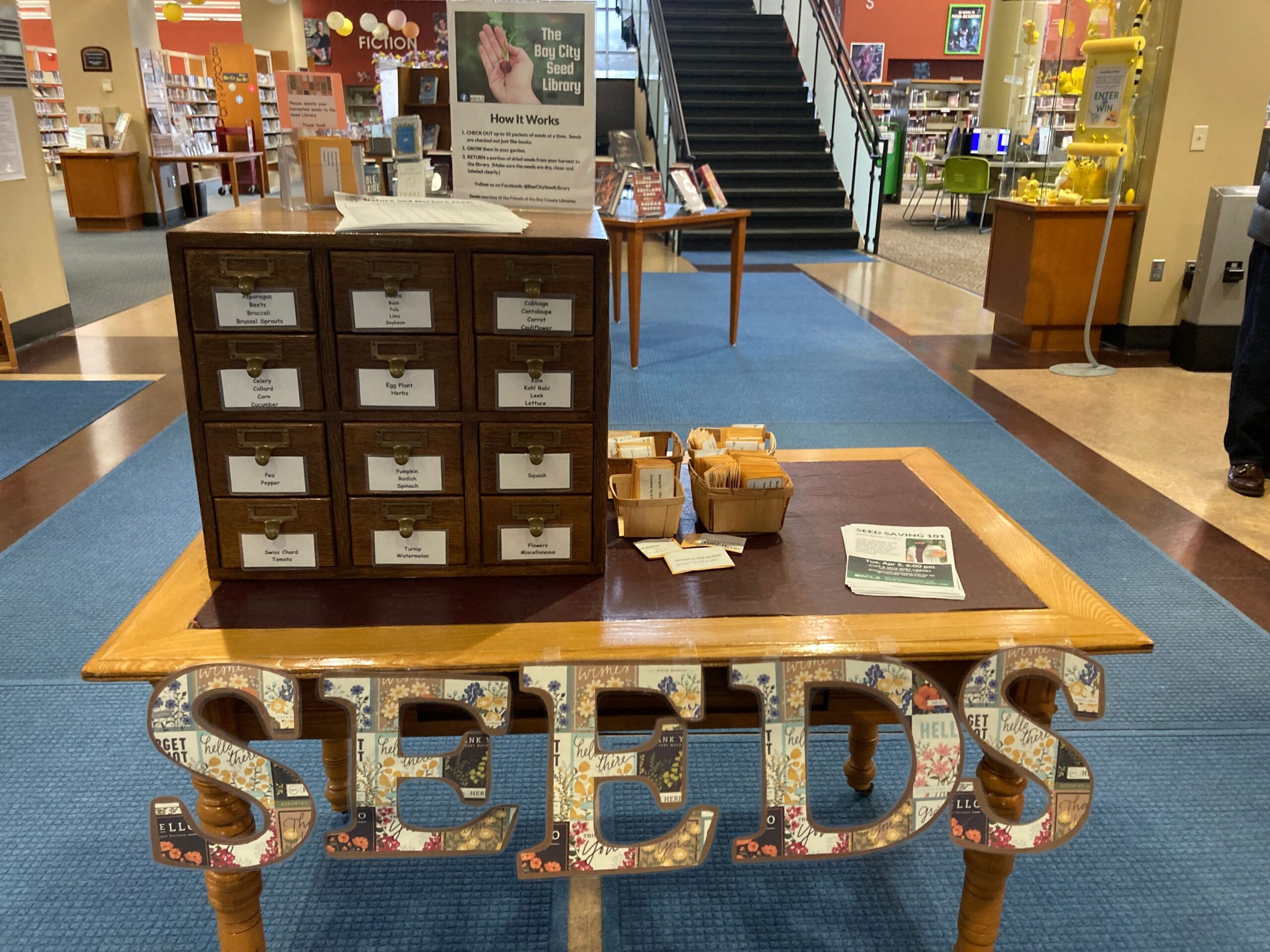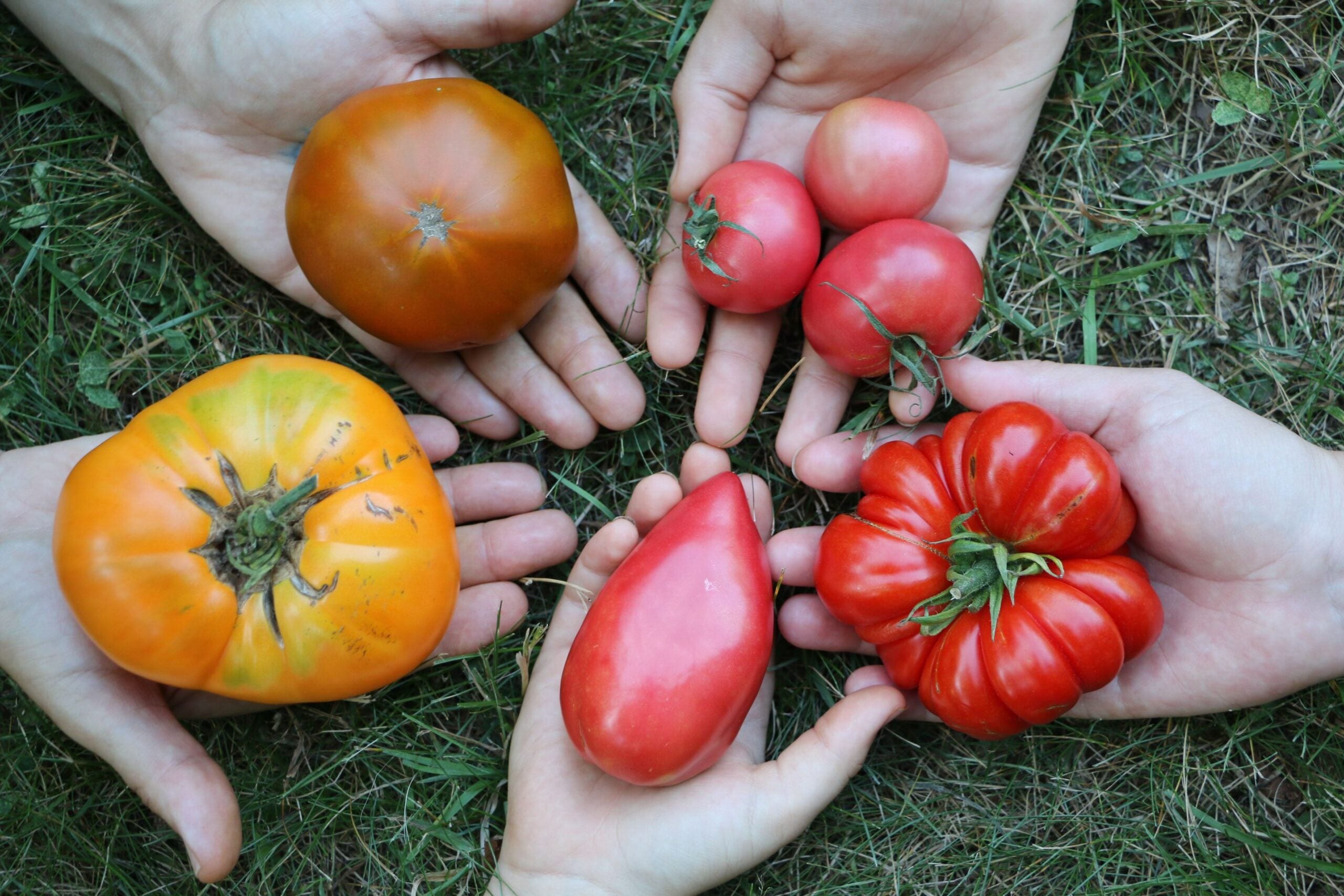For well-seasoned gardeners and beginners alike, seed saving can help level up your gardening game by building hearty varieties and joining a larger community. That’s according to Michigan-based saver Bevin Cohen.
Cohen owns Small House Farm in Michigan and is the author of “Saving our Seeds: The Practice & Philosophy.” On WPR’s “The Morning Show,” he said one big challenge for aspiring gardeners is learning when a plant’s seeds are mature enough for saving.
“Tomatoes are an easy one. When a tomato is ripe, when it changes colors from green to red, that signals its maturity,” Cohen said. “And that’s when we know those seeds are ready to harvest. They’re ready to be saved and shared with your friends or put away until next year.”
News with a little more humanity
WPR’s “Wisconsin Today” newsletter keeps you connected to the state you love without feeling overwhelmed. No paywall. No agenda. No corporate filter.
Tomatoes are just one of thousands of plants that offer the possibility of seed saving. Cohen said local seed libraries house many varieties of vegetables, wildflowers and other garden plants.
On “The Morning Show,” Cohen talked about how seed libraries work and the knowledge they help gardeners share.
The following was edited for brevity and clarity.
Kate Archer Kent: You’re the founder of the Michigan Seed Library. It seeks to establish community seed-sharing programs. What are the benefits of sharing seeds across a community?
Bevin Cohen: First and foremost, it’s building that community and bringing like-minded people together to share something that they love. When we have a central hub, a seed library, people from all over the community can come together — not only to share their seeds, but also to learn from each other and to experience their frustrations together.
Gardening can be challenging. And if you’re doing that by yourself, you might want to give up. But when you have a community behind you that you can learn from, you have all of these wonderful opportunities to grow a better garden, to become a better gardener, to get better produce, all sorts of wonderful things.
Plus, when we grow our own seeds in our community and save them and share them, those seeds will adapt to the area that we grow them in. So as opposed to buying new seeds that come from another place, seeds from our own communities, from our own gardens, will actually perform better and give us bigger and more delicious produce to enjoy.

KAK: I keep hearing the word “library” and it just makes me wonder, could local book library systems establish seed libraries?
BC: Actually, most seed libraries are housed within public libraries. A seed library functions a lot like a traditional library does. You come to the library and you check out your seeds just like you would check out your books. You take it home, you enjoy them, you plant the seeds and you grow your garden.
And then in the fall, you can save the seeds from your garden and bring them back just like you bring your book back after you’re done reading it. You can bring your seeds back to the library to restock it for your community to enjoy next spring.
KAK: How do you ensure the seeds are protected and that they will be able to be carried on and continued?
BC: That’s such a wonderful question. So at the Seed Savers Exchange, they preserve thousands upon thousands of different varieties, and they actually have a vault where they keep the seeds stored at very cold temperatures. It’s essentially like a very large walk-in freezer and seeds stored in these types of environments will last for a multitude of years. It’s long-term storage and that’s great for long-term preservation.
But for us home gardeners, we don’t necessarily want to put all of our seeds in the freezer. We want to continue to plant our seeds. Planting those seeds every year, saving the seeds from our crops, I think, is the best way to do things. And in that scenario, you just want to keep your seeds in a cool, dark location. Maybe in a closet or in a cupboard where you store your canned food. As long as it’s cool, dark and dry, the seeds will typically be perfectly fine to store until next year.
KAK: Should people collect seeds from fruits or vegetables that are purchased at the grocery store?
BC: That’s a question people ask a lot. People will say, “Oh, maybe you shouldn’t save seeds from your fruits or vegetables at the grocery store because you don’t know if they’ve been cross-pollinated. You don’t know how they’re being grown. You don’t know if those seeds are necessarily going to come true to life.” But quite often those seeds will grow and they will produce food. And if you’re just going for fun, if you just want to produce some cool peppers or tomatoes, you absolutely can do that.
Wisconsin Public Radio, © Copyright 2026, Board of Regents of the University of Wisconsin System and Wisconsin Educational Communications Board.


